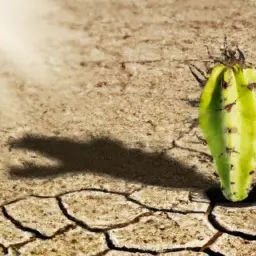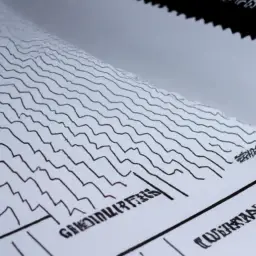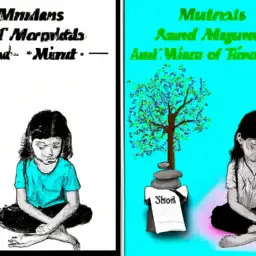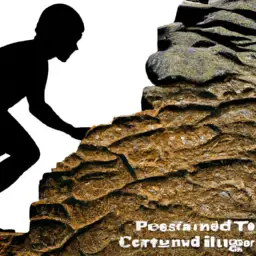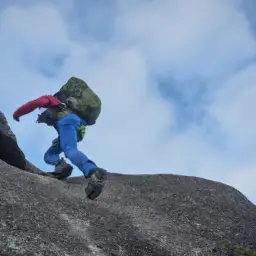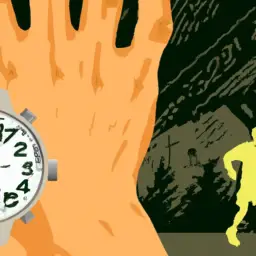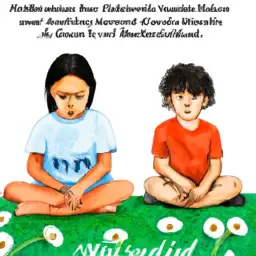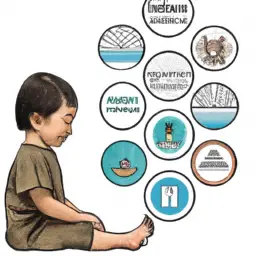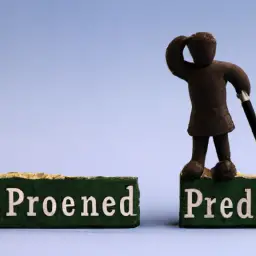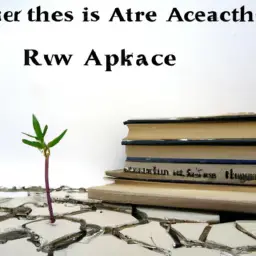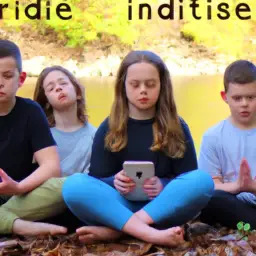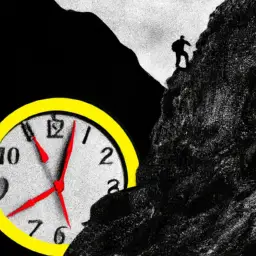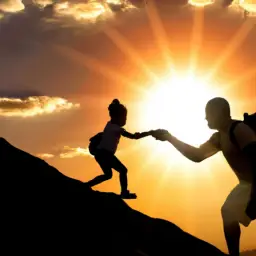Are you interested in personal growth and development? Do you often wonder how much of your success is due to your environment versus your innate abilities and personality? If so, then you’ll want to check out Martin Seligman’s book ‘Grit and Resilience’.
In this book, Seligman, a renowned psychologist and founder of positive psychology, explores the role of grit and resilience in achieving success and happiness, and examines the impact of environment on these traits. In this article, we’ll take a closer look at Seligman’s arguments and the critiques of them. We’ll explore the implications of his insights for personal growth and societal change.
Whether you’re a student, professional, or simply interested in the psychology of success and happiness, you’ll find valuable insights and thought-provoking ideas in ‘Grit and Resilience’.
So let’s dive in and see what Seligman has to say!
Key Takeaways
- Grit and resilience can be developed through deliberate effort and practice.
- Environment plays a significant role in developing these traits, including positive role models and supportive communities.
- Cognitive skills and emotional intelligence are essential in developing grit and resilience, which can be influenced by environmental factors such as education and parenting style.
- Personal responsibility is important in cultivating grit and resilience, and individual effort and agency are necessary in developing these traits.
Martin Seligman and His Contribution to Positive Psychology
You’re going to love learning about Martin Seligman and how he revolutionized the field of positive psychology with his groundbreaking research on grit and resilience. Seligman is considered the father of positive psychology, a field that focuses on the positive aspects of human behavior and experience.
His research on learned optimism has helped countless individuals develop a positive outlook on life, leading to greater happiness and success. Seligman’s work on grit and resilience is particularly noteworthy.
He believes that these traits are not innate, but can be developed through deliberate effort and practice. This is a comforting thought for anyone who may feel like they lack resilience or grit. Seligman’s research shows that by intentionally building these traits, we can become more resilient and better equipped to handle life’s challenges.
Overview of ‘Grit and Resilience’
When it comes to developing grit and resilience, your environment plays a significant role. This includes the people you surround yourself with, the opportunities available to you, and the challenges you face.
Additionally, cognitive skills are essential in developing these traits. These include the ability to set goals, problem-solve, and stay focused.
Finally, emotional intelligence also plays a crucial role in developing grit and resilience. This includes the ability to regulate emotions, manage stress, and maintain a positive outlook.
The Role of Environment in Developing These Traits
If you want to develop grit and resilience, it’s important to consider the role of your environment and how it can influence your character. While some people may argue that these traits are primarily innate, research has shown that nature vs nurture is a false dichotomy. Both factors play a crucial role in shaping who we are.
In his book, Martin Seligman acknowledges the impact of upbringing in developing grit and resilience. He notes that individuals who grow up in environments with high levels of stress and adversity may be more likely to develop these traits as a means of coping. However, he also emphasizes the importance of positive role models and supportive communities in fostering these qualities.
By surrounding yourself with people who embody grit and resilience, you can learn from their example and develop these traits yourself.
The Importance of Cognitive Skills
Don’t underestimate the importance of honing your cognitive skills if you want to thrive in today’s fast-paced world. While grit and resilience are crucial traits to possess, they can only take you so far without the necessary cognitive development. This is where the nature vs nurture debate comes into play. While some may argue that intelligence and cognitive skills are largely determined by genetics, research suggests that environmental factors can play a significant role in shaping these traits.
In fact, studies have shown that cognitive development can be influenced by a variety of environmental factors, such as education, parenting style, and socioeconomic status. For example, children who grow up in poverty often have poorer cognitive development compared to their more affluent peers. This highlights the importance of providing equal opportunities for all individuals to develop their cognitive skills, regardless of their background. By doing so, we can help create a more equitable society where everyone has the opportunity to thrive.
| Environmental Factors | Impact on Cognitive Development |
|---|---|
| Education | Positive |
| Parenting style | Positive |
| Socioeconomic status | Negative |
| Access to resources | Positive |
Table: Environmental factors that can impact cognitive development.
The Role of Emotional Intelligence
Developing emotional intelligence is crucial for personal and professional success. It allows individuals to better understand and manage their own emotions and those of others. Emotional intelligence involves being aware of, controlling, and expressing one’s emotions, as well as handling interpersonal relationships judiciously and empathetically.
Here are four items to consider when developing emotional intelligence:
- Self-awareness – Recognize and understand your own emotions, strengths, and weaknesses.
- Self-regulation – Manage your own emotions and impulses, and adapt to changing circumstances.
- Empathy – Understand and relate to the emotions of others.
- Social skills – Communicate effectively, build relationships, and work collaboratively with others.
Incorporating these skills into daily life can help develop emotional intelligence and improve self-awareness, empathy, and interpersonal relationships. Developing emotional intelligence is a lifelong process that requires continuous effort and practice, but the benefits are numerous and can lead to improved personal and professional success.
Critiques of Seligman’s Arguments
As you dive into a discussion on critiques of Seligman’s arguments, it’s important to consider the limitations of focusing solely on environment when it comes to developing grit and resilience.
While environment can play a role in shaping one’s character, it’s essential to recognize the need for individual effort and agency in cultivating these traits.
By acknowledging the importance of both external factors and personal responsibility, a more comprehensive understanding of grit and resilience can be achieved.
The Limitations of Focusing on Environment
You might think that your environment is the sole factor in determining your success, but it’s important to recognize the limitations of this belief.
While it’s true that our surroundings and upbringing can play a significant role in shaping our attitudes and behaviors, it’s not the only factor. The nature vs. nurture debate has been ongoing for decades, and the truth is that both play a role in determining our grit and resilience.
Personal responsibility is also an important factor to consider. While our environment can provide opportunities or barriers, ultimately it’s up to us to decide how we respond to them. We have the power to choose our attitudes, behaviors, and actions, even in the face of adversity.
Focusing solely on our environment can shift the responsibility away from ourselves and onto external factors, which can limit our growth and potential. It’s important to strike a balance between recognizing the impact of our environment while also taking personal responsibility for our actions and decisions.
The Need for Individual Effort
Without putting in consistent and focused effort towards our goals, we can’t expect to achieve the level of success we desire.
While environment and external factors do play a role in our lives, ultimately it’s up to us to take responsibility for our own achievements. Individual initiative and self-motivation are essential in developing grit and resilience, as we must be willing to persevere through challenges and setbacks.
It’s important to remember that grit and resilience are not innate traits that we’re born with, but rather qualities that can be developed through deliberate and persistent effort.
This means setting clear goals, creating a plan of action, and staying committed to our objectives even when faced with obstacles. By cultivating a growth mindset and embracing the idea that our abilities and talents can be improved with practice and determination, we empower ourselves to overcome adversity and achieve our full potential.
Implications for Personal Growth
Furthermore, developing grit and resilience can lead to significant personal growth, as individuals learn to overcome obstacles and persevere through challenging situations. Through self-reflection exercises, individuals can identify areas in which they struggle and work to improve them, ultimately building a growth mindset.
This growth mindset can not only help individuals to become more resilient, but can also lead to greater success and fulfillment in all areas of life. Personal growth through grit and resilience also involves learning to embrace failure as a necessary part of the learning process.
By reframing failure as an opportunity for growth and embracing the lessons learned from it, individuals can become more resilient and better equipped to handle future challenges. As a result, developing grit and resilience can have a profound impact on an individual’s personal and professional life, leading to increased confidence, improved relationships, and overall success.
Implications for Society
Developing grit and resilience not only benefits individuals but also has positive implications for society as a whole. When individuals possess these qualities, they become better equipped to handle adversity and setbacks, which allows them to bounce back and continue moving forward. This resilience not only benefits individuals but also contributes to a more productive and innovative society.
Furthermore, societal change and policy implications can be positively impacted by individuals who possess grit and resilience. When more people are resilient, they can better handle the challenges that come with changes in society, whether it’s economic, social, or political. They’re better equipped to adapt to changes and contribute to finding solutions to complex problems.
Therefore, it’s essential to promote the development of grit and resilience in individuals, as it not only benefits them but also has positive implications for society as a whole.
Frequently Asked Questions
What is Martin Seligman’s background and how did he become interested in positive psychology?
Martin Seligman is a renowned psychologist who’s famous for his contributions to the field of positive psychology. He became interested in psychology during his college years and was fascinated by how it could improve people’s lives. Seligman’s background, growing up in a family of psychologists, may have influenced his interest in the field.
Throughout his career, Seligman has extensively researched optimism, happiness, and well-being. He’s also the founder of the positive psychology movement, which aims to understand what makes people thrive and how we can cultivate positive emotions and behaviors.
Seligman’s work has had a significant impact on the field of psychology, and it’s helped many people lead happier, more fulfilling lives.
Are there any other influential researchers or thinkers in the field of positive psychology?
Positive psychology has been shaped by many influential researchers and thinkers. Some of the most prominent figures include Barbara Fredrickson, who pioneered the study of positive emotions, and Mihaly Csikszentmihalyi, who developed the concept of flow.
Another significant figure in the field is Carol Dweck, who researched the importance of a growth mindset. However, it’s important to note that cultural differences may play a significant role in how positive psychology is studied and practiced.
As such, it’s crucial for researchers and practitioners to consider the cultural context in which their work is being conducted.
How does the concept of grit and resilience apply to different cultures and societies around the world?
When considering cross-cultural applications of grit and resilience, it’s important to recognize that different cultures and societies may have varying values and beliefs that influence how these concepts are understood and implemented.
Challenges and adaptations may arise when attempting to apply a Western-centric perspective of grit and resilience to non-Western contexts.
For example, collectivistic cultures may prioritize community support over individual perseverance, while certain religions may emphasize acceptance of fate rather than striving for personal growth.
In order to effectively promote grit and resilience across cultures, it’s necessary to take into account these cultural nuances and adapt the concepts accordingly.
Can individuals who have experienced significant trauma or adversity still develop grit and resilience?
Yes, you can develop resilience even if you’ve experienced significant trauma or adversity. Developing resilience is a process that involves learning and adapting to difficult situations.
Overcoming trauma isn’t easy, but it’s possible. Resilience isn’t just about bouncing back from difficult situations, but also about growing and learning from them. It’s important to seek support from others and to practice self-care.
Developing a positive mindset, setting achievable goals, and focusing on your strengths can also help you develop resilience. Remember, resilience isn’t something you’re born with, but something you can develop over time.
How can the principles discussed in ‘Grit and Resilience’ be applied in practical, everyday situations to promote personal growth and well-being?
To develop grit in the workplace, it’s important to focus on setting achievable goals and breaking them down into smaller tasks. This can help you build momentum and stay motivated, even when faced with challenges or setbacks.
Additionally, cultivating resilience in relationships involves practicing empathy and active listening, as well as developing healthy coping mechanisms for dealing with conflict or stress.
By prioritizing these principles in your daily life, you can promote personal growth and well-being while also positively impacting those around you.
Remember that developing grit and resilience is an ongoing process, and it’s okay to make mistakes and learn from them along the way.
Conclusion
Overall, ‘Grit and Resilience’ by Martin Seligman is a thought-provoking book that challenges the traditional understanding of success and achievement.
While Seligman’s arguments have received criticism for neglecting the impact of systemic barriers and social inequality, it’s still a valuable read for those interested in personal growth and development.
The book encourages readers to cultivate a sense of purpose and perseverance in the face of adversity, and to view setbacks as opportunities for growth rather than failure.
In a broader sense, Seligman’s ideas have implications for society as well. By shifting the focus from innate talent to effort and resilience, we can create a more equitable society that values hard work and determination over privilege and advantage.
Ultimately, ‘Grit and Resilience’ is a compelling call to action for individuals and communities alike to embrace the power of perseverance and embrace challenges as opportunities for growth.









